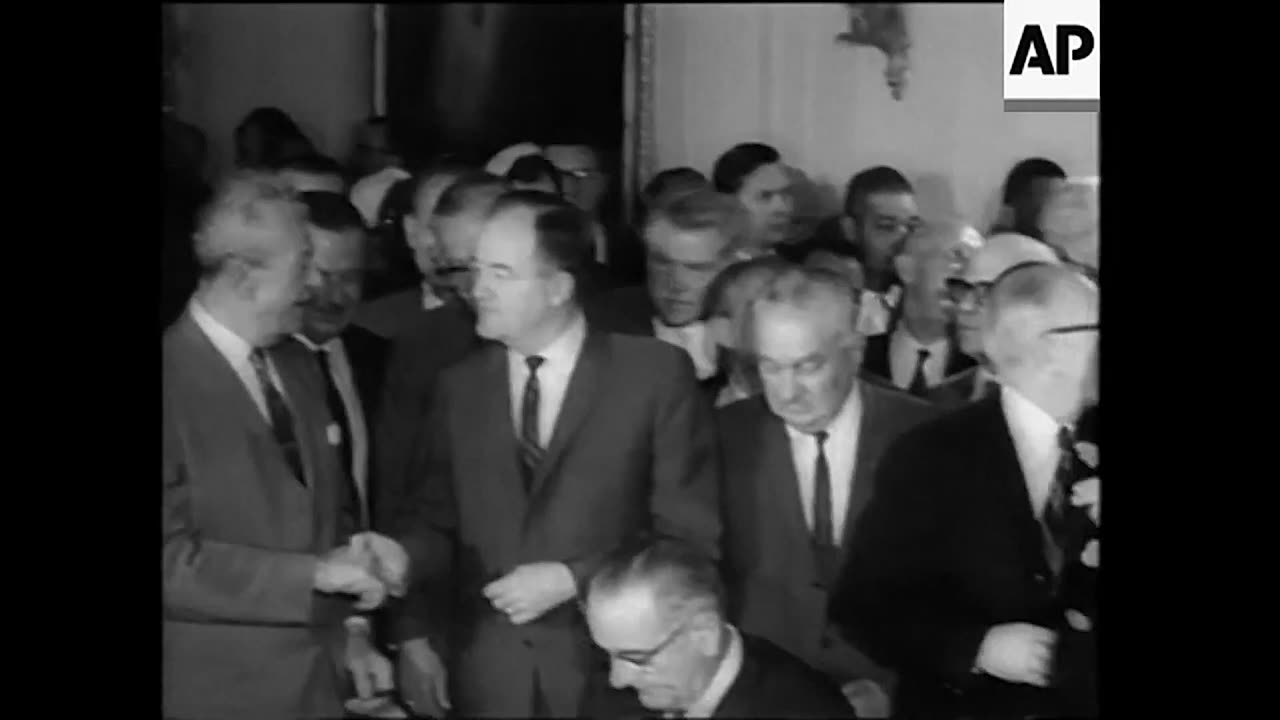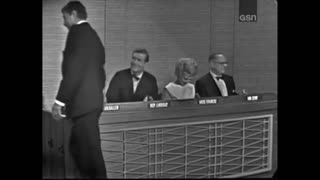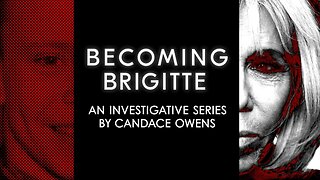Premium Only Content

July 3, 1964 | Civil Rights Bill Newsreel
July 3, 1964 - Negroes at steak side by side with whites in a Danville, Va., restaurant today for the first time. A Negro boy got a haircut in a previously all-white hotel barbershop in Kansas City, Mo. And Negroes went swimming in a previously segregated swimming pool in Savannah, Ga.
They were among scores of Negroes who tested the Civil Rights Act of 1964, which was signed by President Johnson yesterday.
For the most part, their integration attempts were accepted quietly by communities in the South where racial trouble has often flared in the past. There was only scattered resistance.
In Jackson, Miss., the Chamber of Commerce urged all businessmen to adhere to the provisions of the new law. The action was considered significant because the city is the headquarters of the White Citizens Council and a center of segregationist views.
Two bowling alleys in Beaumont, Tex., and some eating places in Selma, Ala., and Valdosta, Ga., refused to serve Negroes.
But adherence to President Johnson’s call for compliance with the law was the general rule. However, in many cities, such as racially troubled St. Augustine, Fla., there was no attempt to test the law.
The Reverend Andrew Young, a Negro leader there, said he would be glad to work with restaurant owners so that tests could be peaceful.
“We’re not concerned,” he said, “with forcing our rights down somebody’s throat.”
The attitude of most restaurant owners in the South appeared to be summed up by Cy Shiap, owner of a steakhouse in Danville, Va.
“Last year, we fought them because they were breaking the law,” Shiap said. “This year, I’d be breaking the law if I refused to serve them. I’m a law-abiding citizen. If the law says feed them, I feed them. While I don’t like it, I’m not going to break the law.”
When four Negroes ate in his restaurant today, it was the first time in the city’s modern history that whites and Negroes had dined together in a public restaurant.
In Dallas, the Piccadilly Cafeteria, which had been the recent site of picketing by white and Negro demonstrators for 28 days, served a Negro minister about two hours after President Johnson signed the rights bill.
The Reverend John Bethel said: “Everyone was polite, and the food was good.”
Support this project at patreon.com/realtime1960s
-
 6:54
6:54
Real Time 1960s
5 days agoMar. 28, 1965 | Robert Mitchum on “What’s My Line”
52 -
 58:00
58:00
The StoneZONE with Roger Stone
6 hours agoEuropean Leaders Resist Trump Peace Overtures To Their Own Demise | The StoneZONE w/ Roger Stone
63.3K11 -
 9:29
9:29
AlaskanBallistics
8 hours ago $4.38 earnedWyoming Suppressors and Rifles at Shot Show 2025
64.3K3 -
 1:06:40
1:06:40
Donald Trump Jr.
12 hours agoThe Left is Taking one L After Another, Live with Michael Knowles | Triggered Ep. 217
159K110 -
 47:17
47:17
Kimberly Guilfoyle
12 hours agoWoke Gets DOGE’d, Live with AJ Rice & Jarrett Stepman | Ep. 197
119K42 -
 20:11
20:11
Candace Show Podcast
10 hours agoBecoming Brigitte: Candace Owens x Xavier Poussard | Ep 6
178K318 -
 8:25:38
8:25:38
Dr Disrespect
15 hours ago🔴LIVE - DR DISRESPECT - ELDEN RING DLC - REVENGE
185K22 -
 54:22
54:22
LFA TV
1 day agoThe End of the Trans-Atlantic Alliance | TRUMPET DAILY 2.17.25 7PM
44.7K6 -
 55:56
55:56
BIG NEM
13 hours agoUGLY COCO: The Rapper Who’s Tried EVERY PSYCHEDELIC 🌌
18.3K1 -
 1:42:51
1:42:51
2 MIKES LIVE
11 hours ago2 MIKES LIVE #181 Deep Dive Monday!
23.6K3